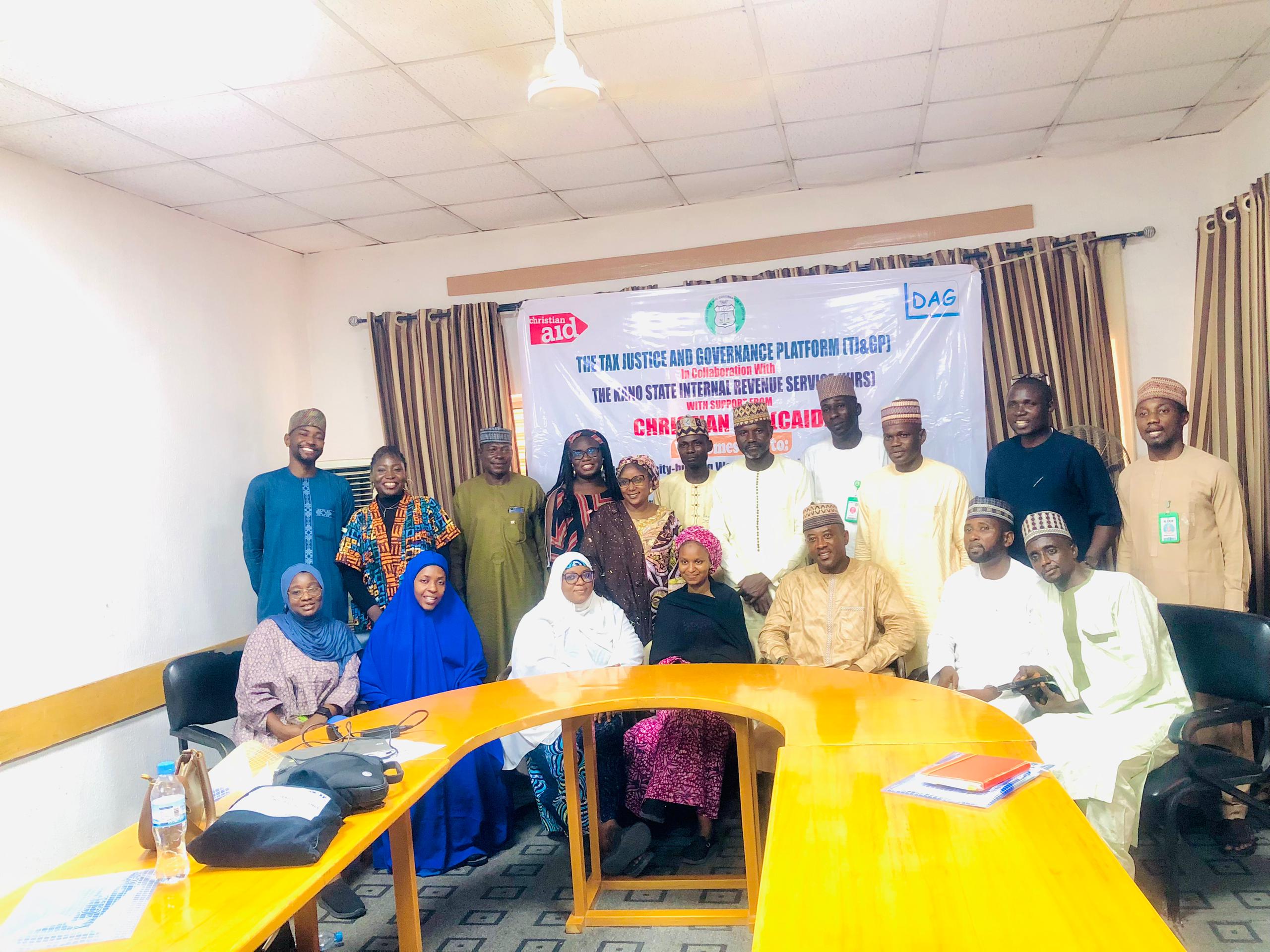From Mustapha Salisu
As part of efforts to strengthen public engagement in tax processes, the Tax Justice Governance Platform (TJ&GP) organized a one-day capacity-building workshop on Grievance Redress Mechanism (GRM) System Management for staff of the Kano Internal Revenue Service (KIRS).
Supported by Christian Aid (CAID), the training brought together officers from KIRS’ GRM Unit and was held today at Aminu Kano Centre for Democratic Research (Mambayya House), Kano.
In his opening remarks, Sadiq Muhammad Mustapha, Program Lead at Tax Justice Kano, emphasized that the goal of the training was to enhance the capacity of the State Internal Revenue Service’s GRM and awareness officers to address tax grievances professionally and in a timely manner.
He added that the initiative aligns with Tax Justice’s objective of improving gender responsiveness, accountability, transparency, and public engagement in tax processes.
“At Tax Justice, we aim to equip officers with the skills necessary to raise citizens’ awareness of their tax rights, obligations, and available GRMs,” Sadiq stated.
Nafiu Shehu, Special Adviser to the KIRS Chairman, highlighted that the Service is working to ease the tax burden on citizens while boosting state revenue by introducing a computerized tax system to eliminate issues of multiple taxation in Kano State.
He acknowledged Tax Justice as a valuable partner and welcomed further collaboration with other stakeholders for the state’s development.
Swanta Mindat, representing Christian Aid, noted that one of CAID’s core missions is to eradicate poverty by advocating for justice, particularly in tax-related matters.
She explained that the GRM System allows taxpayers to voice complaints and feedback, helping KIRS address grievances effectively. This, in turn, encourages taxpayers to contribute more, supporting social development.
Ashaolu Dolapo Dorcas, Gender Officer at CISLAC, praised KIRS for its progress in addressing gender issues and advancing from the “Get it right” to the “Get it transformative” stage.
She commended KIRS for assigning officers to gender-related concerns and for its steps towards digitalization and system harmonization, positioning the Service as a model for other states.


